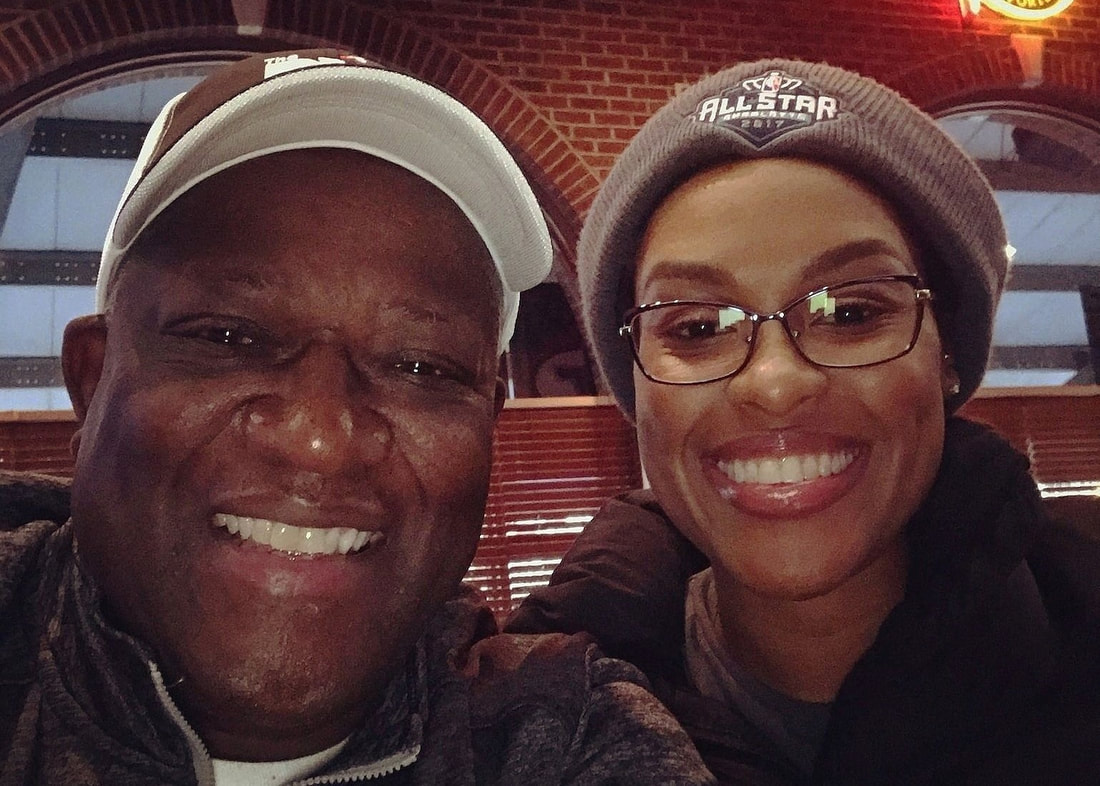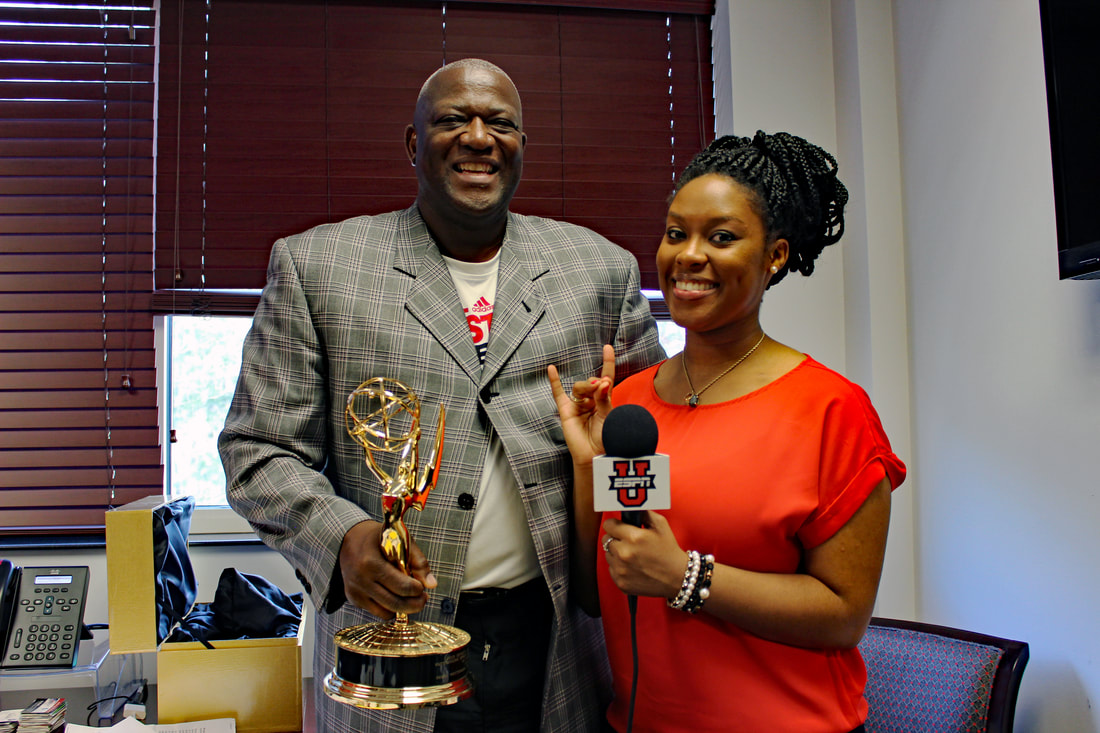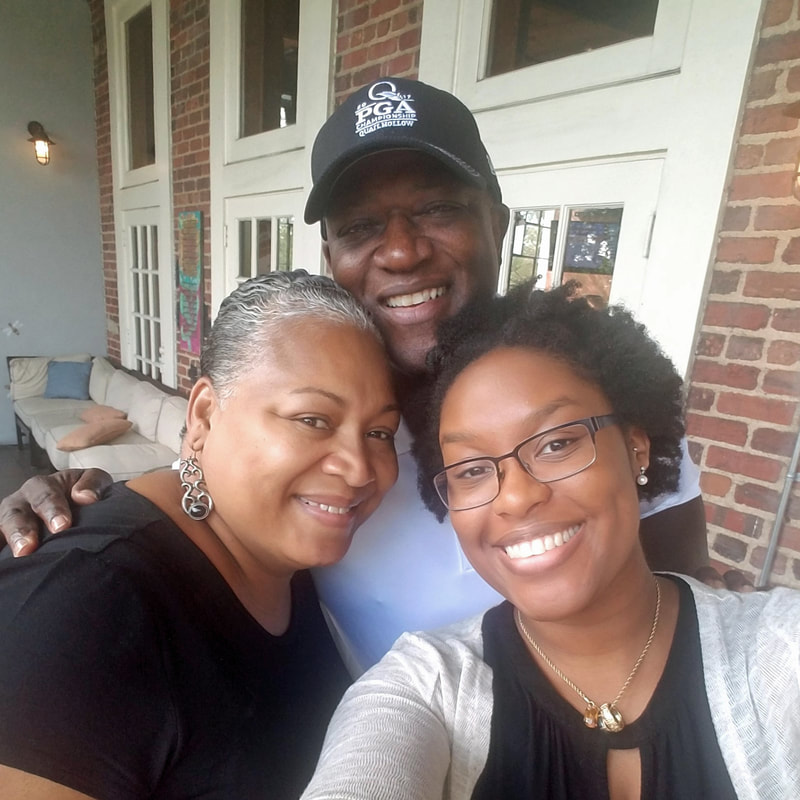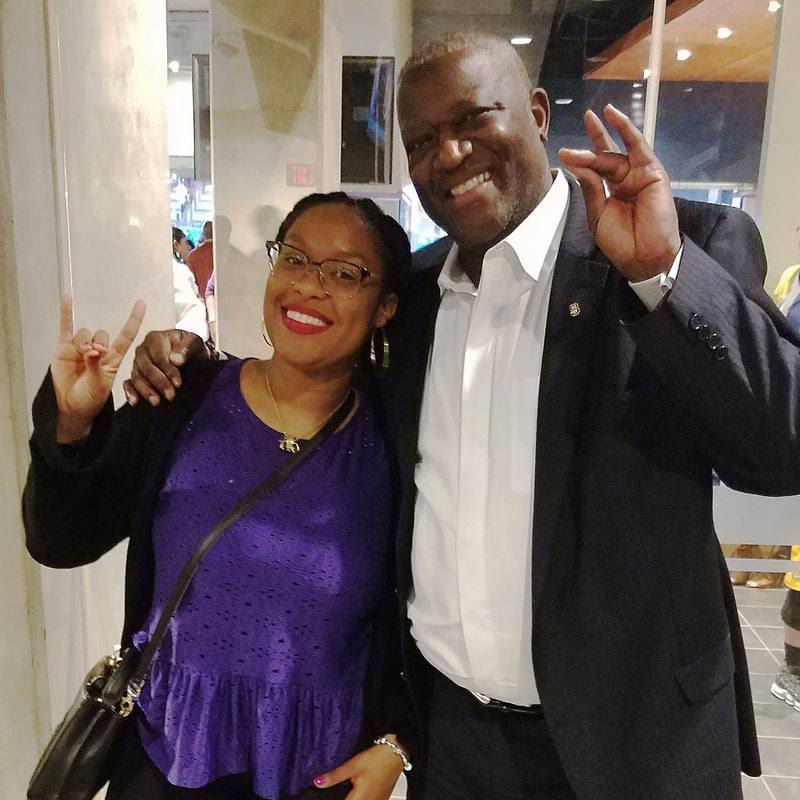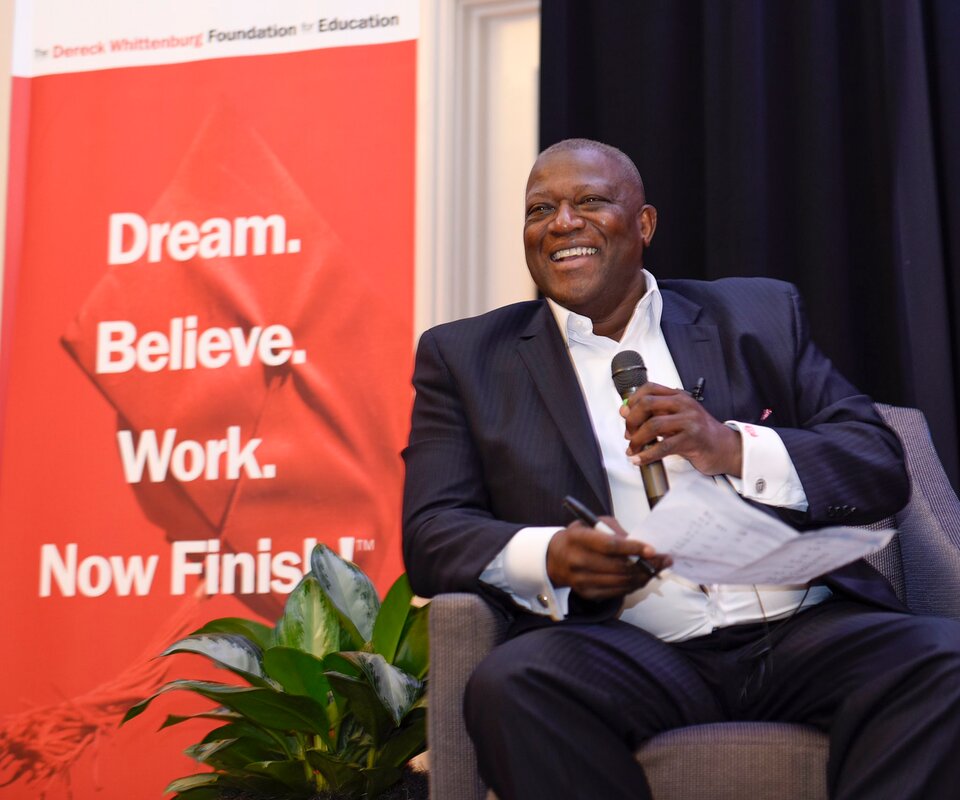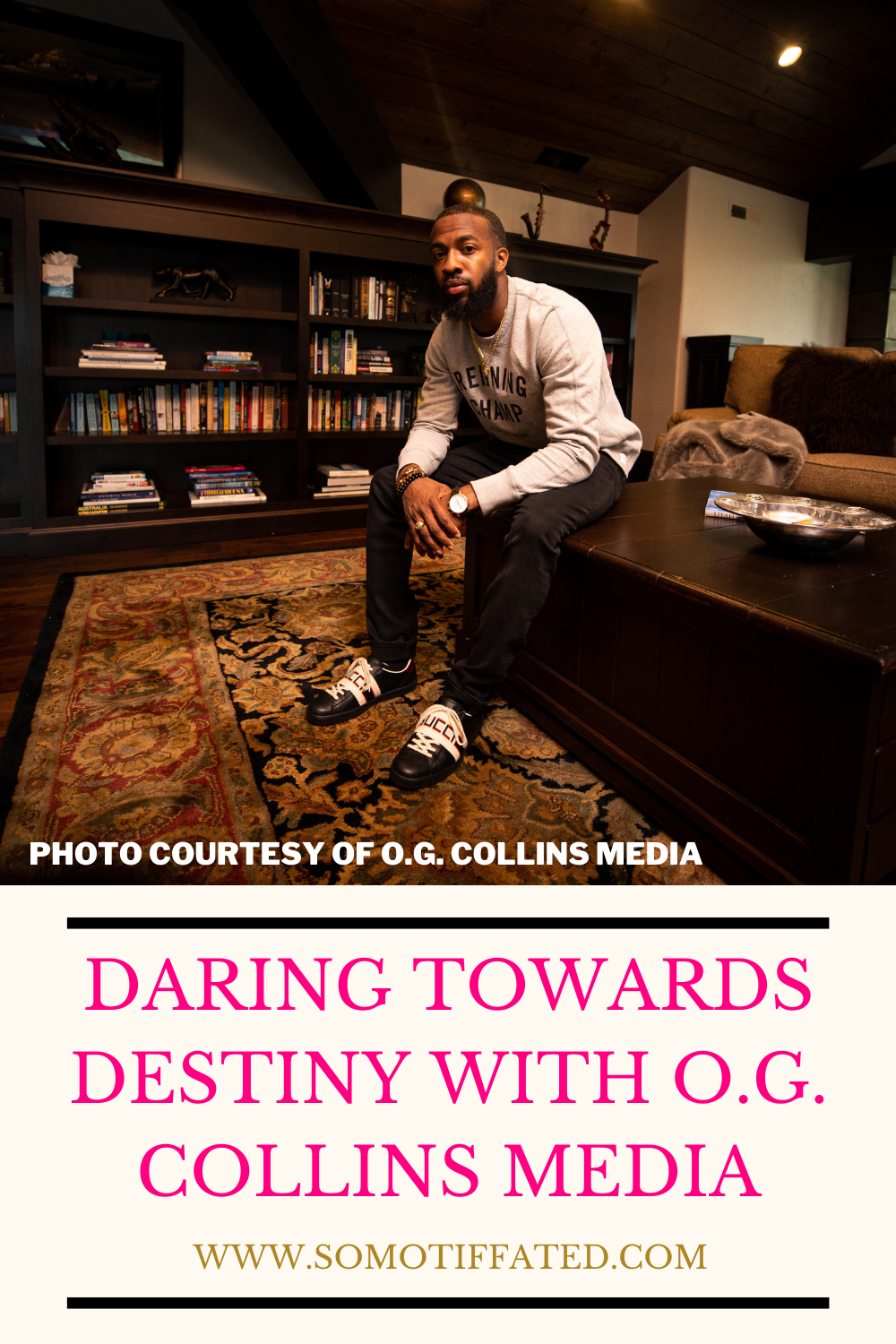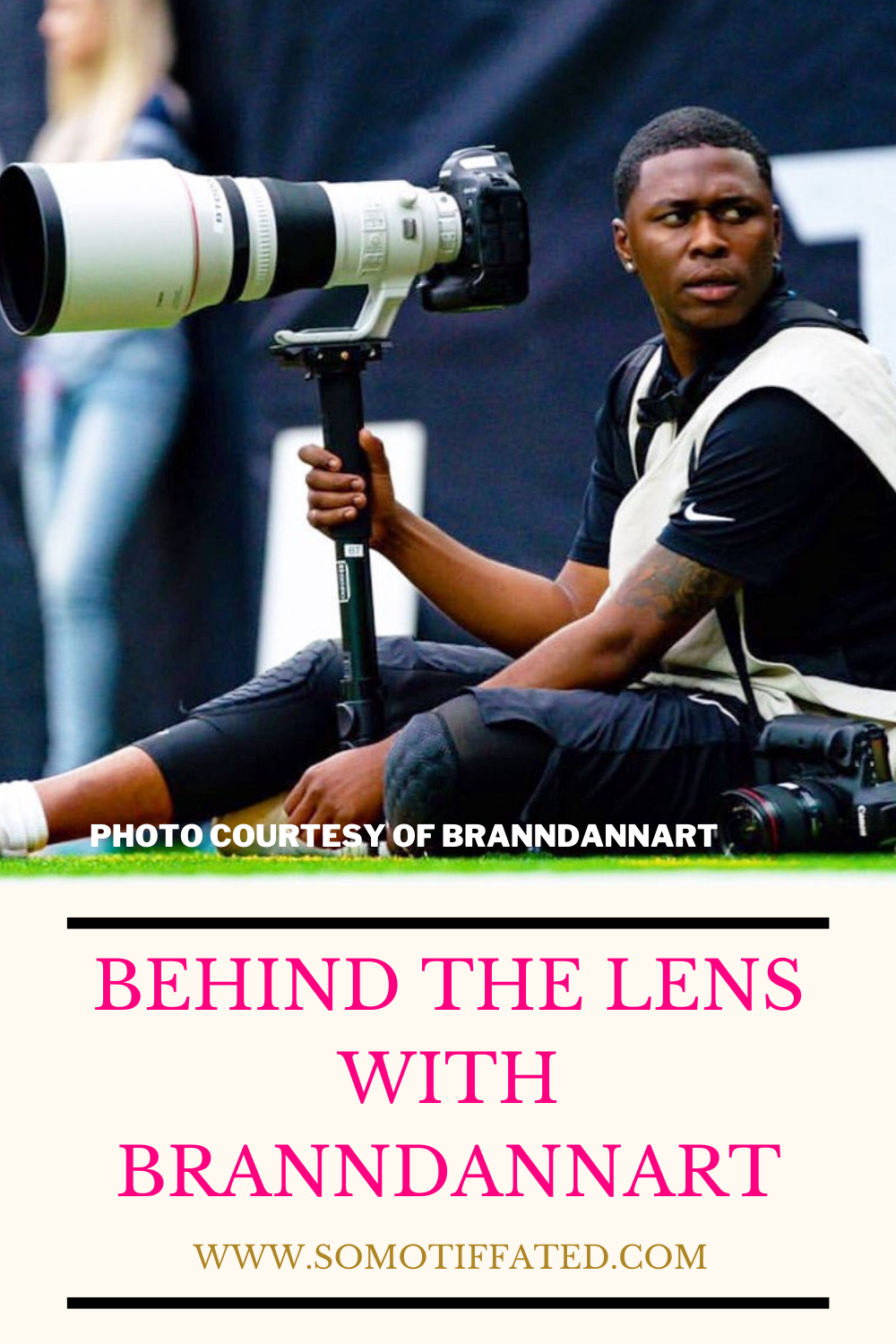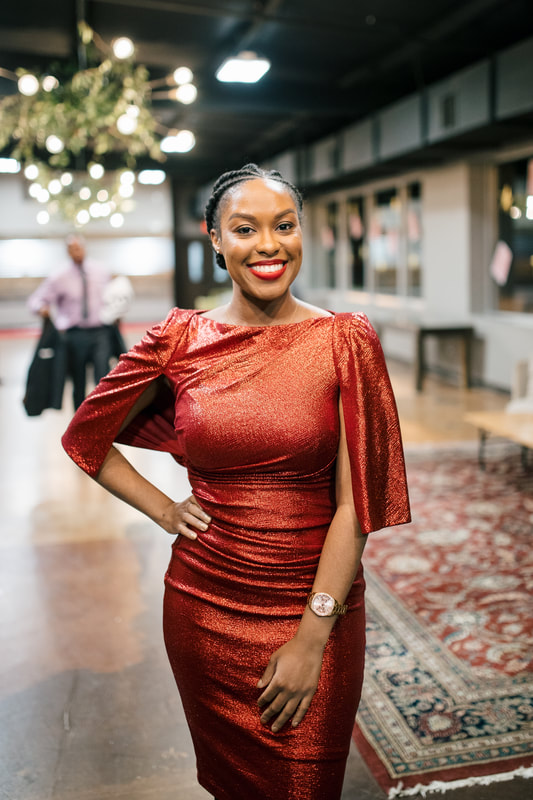|
Many of you know Dereck Whittenburg from the 1982-1983 North Carolina State University (NCSU) Men’s Basketball team and his notorious, shall we say “pass” to Lorenzo Charles that defined their 1983 NCAA championship win and cemented his place in college basketball history. Coached by the beloved Jimmy Valvano, Whittenburg has continued to keep Valvano’s legacy alive through his involvement with the V Foundation and the 30 for 30: Survive and Advance special on ESPN, though it’s important to note Whittenburg has established a strong legacy of his own.
Personally, I met Coach Whitt during my senior year of college at NCSU when I interviewed him during State’s NCAA Sweet Sixteen run in 2015, while I was an ESPNU Campus Connection correspondent. Fresh off receiving an Emmy for 30 for 30: Survive and Advance, he showed his award to me and the other correspondent following our interview and then gave us his business card. He kindly invited us to his foundation launch event that May. Unfortunately, his launch was after the end of the semester, so I wasn't able to attend but did send him a card expressing well wishes.
Fast forward to the fall of that year, I found his card and after having an informational interview with someone I felt took the call as a courtesy and had no desire to offer sound career guidance, I felt a bit discouraged. So, I called Coach Whitt. Surprisingly, he answered. I remember starting the conversation by saying hi, my name, how we met, then followed by “I don’t know if you remember me, but I need help.” Plain and simple. Your girl was struggling just a tad. A fresh college graduate with 2 Bachelor of Arts degrees and no full-time job or prospects, and was still working at the grocery store part-time as my source of income.
Quickly, he offered support. He said he remembered me and invited me to his inaugural golf invitation to raise money for The Dereck Whittenburg Foundation. Not only did he extend the invitation to me but he also invited my brother, and shared his network with me by providing the names and contact information of a few sports professionals in the Charlotte area. A sigh of relief.
Thankfully, since that day I called 5 years ago, Coach Whittenburg has been in my corner as a mentor and has checked on me throughout the good and bad. It's a pleasure to be able to share with my audience a bit about the basketball legend and philanthropist.
As you read this interview, you’ll get a glimpse into Dereck Whittenburg, the person, and not Dereck Whittenburg, the athlete that so many people know from television.
Note from the Editor-in-Chief: The conversation below has been edited and condensed.
Tiffany Johnson: What led you to the game of basketball?
Dereck Whittenburg: When I was growing up in [the] Washington D.C. area, growing up playing in the playground I played all the sports. I played seasonal, so basketball when I was young around 6 or 7, and mostly baseball, and football. When we moved to the Maryland area when I was about 8 or 9 years old, I started getting into basketball and played with the Boys Club and played more organized sports. When I moved out to Maryland, that’s when my interest peaked up for sports. What was it like growing up in Maryland and eventually playing under Coach Morgan Wootten at DeMatha [Catholic High School]? I had this thing about going to college, and earning a scholarship. That was mid-70s and I was in my teens, and that was the thing. Then, we heard about this great school called DeMatha High School with this great coach, Morgan Wootten, and guys were getting scholarships. So, a good friend of ours said you’re good enough to play at a top-notch school like DeMatha, you’re a good enough student, and next [thing] you know I was in the 10th grade going to DeMatha. My ultimate goal was to get a college scholarship. What’s an invaluable lesson that you learned from Coach Wootten? I learned that what kind of person you are and what kind of people you surround yourself [with] makes the difference. He always told me that character is number one, and number two, what you hang around is what you become, and surround yourself with good people. As successful of a coach that Coach Wootten was, he also was a teacher and he taught us just as much about life as he did with basketball. But, mind you I did want to reiterate I had a good upbringing with my parents. I had good family structure. They were very supportive, taught us all to do the right thing. So, my background, my character and the basis of when I went to DeMatha I had a strong character background. So, when I got there, I was somewhat prepared to handle a DeMatha experience.
Thank you for that, I think it’s important. So often, we just focus on the sport without even realizing to think back and realize the foundation that was laid.
Yeah, what happens is sport is part of what we do, but not who I am and who I am it goes back from the beginning, and you have to include the people, your parents and people before you got there. You can’t give everybody the credit, and the coaches the credit, you were a good person before you arrived there. I don’t want to forget those folks, because they played an integral part in my career and any success that I’ve had. Why did you personally decide to go to NC State? The ACC was the only conference on t.v., and so on Saturday mornings you tend to watch ACC basketball. I happened to watch my cousin David Thompson play, and I kind of fell in love with the late Norm Sloan with that checkered jacket, and it was something about NC State that I loved. It was my number 1 choice, and a place that I wanted to be, and so that’s why I’m still back working there today. All these years have passed, it’s like a boomerang, you keep coming back to NC State. What draws you to the Wolfpack community? To give back. I’ve gotten to the part of my life, where you know, what do you want your legacy to be and your legacy is the people that you can help and that you can empower in their journey in life. I think that’s rewarding to me by being involved in the community and helping our student-athletes, helping our former athletes, helping all students, and then helping the people in the community. To me, that’s real work. I mean making money and having nice things is nice, but it’s much more rewarding to see somebody else succeed as well.
You’re such a kind spirited guy who continues to mentor youth and consistently be there for folks, including myself. What drives you to continue to want to invest in people?
Because nobody does this alone. We’re interdependent. The little encouragements, the big encouragements, the people that help us along the way. Everybody that says something positive to propel you is important, and I just think that people need that encouragement. They need guidance, and I think it’s helpful. To have positive role models and influences in your life, I think it’s a good thing. The first time I called you after college, I had an information interview and it didn’t go that well and I found your card, somehow, and I called you. I was like hey coach, I don’t know if you remember me, but my name is X, you know me from Y, and I need help. I don’t even know if you actually remembered me, but you told me you did and then you quickly offered assistance and I was like thank God. Somebody cares, because I was a fresh college graduate and was struggling and you didn’t shun me away. You actually listened to me and offered me support and that is truly invaluable. Right. That’s what it’s about, that mentorship. Helping people when they need help and it’s not always financial. Right? It’s just a little bit of encouragement. Somebody to talk to, somebody to share things with, and yeah that’s what’s important to me. You could’ve been like I’m busy or I can’t talk to you. Most people aren’t like that, most people don’t take time to truly just listen to somebody to offer support. Yeah, well to be honest with you, society has told us that we have to look out for ourselves, so naturally people are looking out for themselves and they really don’t care about others. They just don’t, because they’re getting busy with their lives and they try to focus on what they have to do. It’s not malicious, sometimes it just happens that way. I will tell you, just letting you know while we’re talking how much I appreciate you because when you come to Charlotte, you call me, you check up on me, and you know that matters, so thank you. Absolutely, to me your journey is just as important to me as what you think your journey is and want to see you have success as well. That’s why I continue to want to be a positive influence, that’s why I encourage you.
I’m just trying to catch up with you doing big things. You’re continuing to cement your own legacy as is evident with the launch of The Dereck Whittenburg Foundation, what motivated you to launch a foundation?
Well, I think all my work with the V Foundation, I’ve been on the Board [of Directors] for the last 27 years and help fighting cancer, seeing people survive cancer every day, it’s really motivation to help folks. My passion has always been, even when I coached for many years is that my kids, the kids that I coached, I wanted them to get their education. Because I was a first-generation graduate. Like right now, one day sports is going to go away. What people are learning right now is that we don’t have sports right now. What can you do? What are you going to do? Everybody always talks about when the air has gotten out of the ball, no. What happens in sports is that 99% of the athletes that play a sport in college, will not continue to play professionally. They just won’t. So, you can be successful doing something else. You just have to prepare yourself. I know it’s a lot of glamour and making a lot of money and stuff in sports and that’s great, but a lot are going to have that opportunity and some of us aren’t going to have that opportunity. Just because you don’t get that opportunity doesn’t meant that you can’t be successful. So, I always think about the 99%, not the 1%. Everybody wants to talk about everything else but the 99%. I love your slogan, Dream. Believe. Work. Now Finish. You spoke about the importance of not only going to school, but finishing school. Can you speak a bit about the impact that your foundation has had thus far? It’s growing. I think it’s impacted our community and the people that we’ve served. I think down the road it’s a concept that can catch on, because [there are] a lot of organizations that advocate to help kids get into college, but not a lot of organizations that help kids finish college. I’m hoping that can resonate with other folks. Not just in other schools, but other states. We think that it’s something that’s going to be very helpful for the future, not just North Carolina but across the country. How much money have you disbursed thus far in your scholarships, if you had a ballpark number? We’ve disclosed close to almost a half a million dollars. We’ll be over the $400,000 after 5 years. We officially started in 2015, and to date we’ve given close to 100 scholarships out, which we think is remarkable. We’re off to a good start, and we wish to keep growing the organization and helping more kids.
As an established public speaker. It’s amazing to watch you work a room. When did you first discover the power of your voice?
I used to watch this guy name Skeeter Swift give these shooting instructions, and he used to talk about not getting involved in drugs and hanging around the wrong people. He’d give a shooting demonstration and then he’d give a little talk. So, I kind of mimicked him. Then when I got into college, I started doing the same thing. I started by going to all these camps and doing these motivational speaking gigs, and giving shooting demonstrations. Then, I became a coach. What people don’t understand is that a coach makes a couple speeches every day. You speak to your team before practice, you give an instruction to your staff, and then you’re giving a speech after practice. So, a coach is constantly speaking and then with your job of going around to donors and speaking to different organizations, you’re speaking at high schools, so it just became something that became part of me and I just start getting involved in doing better at it.
What tips would you give to someone looking to find their voice? Looking to be a public speaker or just be more confident in how they reach people.
Be comfortable with yourself. I think a lot of people are not comfortable. You’ve got to be the best you. Know your strengths and your weaknesses and work on your weaknesses, because your strengths are easy to work on, right? If you’re a good talker, it’s easy for you to talk. If you’re not a good listener, then you’ve got to practice listening. If you have a fear of talking and speaking in front of people, well start doing that - go speak to elementary schools and do things and get involved with kids where you can get up in front of people, and do it until you build your confidence. Just like anything else, you’ve got to get over your fears. Then, number 3 is find your vision. What’s your vision? What do you like to do? That may change. Mine at one time was coaching. I wanted to be a coach. I wanted to be a successful head coach; I did that. I wanted to be a sportscaster, I did that with ESPN. I wanted to do films; I’ve done 3 films. I’m working on another film. I’m working on for the ACC network, a 6-part series of the history of the ACC tournament. I wanted to be more involved in the community. I wanted to come back to NC State in a bigger capacity to be in administration, I’m doing that. A lot of times what people forget, that it’s as simple as people don’t know what they want to do. Then, if you find out what you want to do and your passion, have a plan. What’s your plan? 85% of people who have ideas, they never follow up. That’s why I said dream, you dream about your vision. You work, you stay with it, you believe, right? Now finish it. People don’t finish. Old fashioned. People don’t write down their goals. There is plenty of time to think and to build a strategy. It’s reinventing yourself all the time, and finding out what it is that you want to do and have a plan, and do it. The main thing is to just get started, right? Absolutely. I think a lot of times we talk ourselves out of things. People, whether it’s thinking that they’re not good enough or just wanting to do it to where it’s perfect. Nothing’s perfect, but you’ve got to put your first foot forward and go for it. You talked about 30 for 30: Survive and Advance, which is amazing. I feel like I cried when I first watched it and I think my mom did too. It was a beautiful way to remind folks of the impact of the 1983 team. How was that experience of creating the film? It was unbelievable. We never imagined that it would come out that way. Jonathan Hock, the director, I called him up and I said I think got a great story. How can I tell it? The beautiful thing about our synergy and teamwork is that Jonathan is fabulous at putting stories together, and allowing somebody to tell their stories. Most of the times when you’re doing a film, a book, or a movie, somebody else is telling somebody else’s story. It’s not actually the person who was in the story. It’s somebody else who is telling them about their journey. It just so happened that this was a story, me looking back 30 years and telling the story of my teammates and my coach. He made that relevant into everyday life, and that’s what made that film special. It started out to be a story about a unique group of individuals and this crazy Italian coach from New York, but it’s got so many different messages. A message of togetherness. Teamwork. Persevering. A man with a dream. So many powerful messages, and it just came out beautiful. What was the experience like bonding with your former teammates? It just looked like you had an amazing time. We did! Like I said, on a team you spend a lot of quality time together. What people don’t get to experience. When you work on a job with an organization, they don’t really function as a team. They would like to think they’re a team, but they aren’t even close to being a team. Teamwork is caring about each other, sacrificing for each other, understanding each other. That don’t happen at work. You barely get to know that person. You don’t even know half the people that work in your organization. But a team is a close-knit group of individuals that work closely together and that’s what we demonstrated. We came from all over the place, from different walks of life and made a bond, and more importantly we had the leadership to follow the dream and make it happen.
Was the last time you saw your teammates when you met President Obama [at the White House]?
No. How the film got started is that we were at one of our assistant coach’s [funeral], Ed McLean, who had passed away and Lorenzo Charles was still alive at the time. We all were there sitting at the repass, and I said guys every time we’re getting together, we’re getting together when somebody passes away. We need to get together. Then 3 weeks later, Lorenzo Charles died in that busing accident. So, in my mind, Lorenzo was supposed to be a big part of my film and so I made that quote on Survive and Advance, that hey if we don’t get together, we’re going to be getting together at funerals. So, we made a pack to get together every year. Since 2013, we’ve been getting together every year. What was that like going to the White House and meeting President Obama? We came up with this idea. We wanted to meet President Obama because, he graduated in 1983 at Columbia and he’s the first African-American President, and we thought that would be neat. We never went together to the White House, and then believe it or not, Thurl Bailey came through with Senator Hatch out in Utah and got us the invite to the White House. What an experience we had. What an experience. You’ve got to understand, before you were born, the teacher used to ask you in elementary, what do you want to be? Everybody would say, I want to be the President. That was the thing to say. So, in my lifetime I never thought, my parents thought, they would never see an African-American President, and we did! In my lifetime, we did. It was a wonderful experience for our team. It was great. I wouldn’t trade that experience for the world. You’ve got to understand what was very special about that, people don’t understand. Growing up in Washington D.C., driving around on Pennsylvania Avenue, and looking at those black gates that guard the White House and saying to yourself, I wonder what it’s like to be in the White House. What is it like to be in the most powerful place in the world? Having the opportunity to be in the White House and to speak at the White House on the lawn, Dereck Whittenburg representing the Whittenburg family was an unbelievable experience.
Speaking of coaches, and since you are a coach. Having played for and coached under Jimmy Valvano, what’s a pleasant characteristic that he had that many people may not realize?
Caring. Caring person. Very caring. I heard a story the other day on the golf course about this guy, from Raleigh, was being recruited in a housing project, and he said that Jim Valvano was having a home visit with him. He said he saw a family over there struggling. Didn’t have any clothes. Didn’t have any shoes. He said Valvano saw him, but he didn’t really say anything. He said “did you know that Valvano came back the next day and brought those people clothes?” Those are the kinds of things that nobody talks about. He was a caring, passionate person for people. Magnetic personality, and Jim was real. He loved people. That man enjoyed his life. That man had fun. He seemed like an electric person to be around. The way he spoke. His energy. It seems like you carry a lot of the characteristics that he had, in addition to that of your mother. There’s something about a guy that can walk in the room, and then lights the room up. Now, every celebrity [doesn’t] do that, they only do that because of the cache of who they are, but not necessarily their personality. Why is it important to you to keep Valvano’s legacy alive? I think Valvano’s mission is what he’s doing in the cancer world is just at another level. I want to continue to be a part of that because he chose me. He chose me to be the only player that he ever coached to be a pallbearer at his funeral. I’m the only [player] on the V Foundation board. That’s what his family chose. Some things are awarded to you that you have to honor.
Nice. You’re an Emmy winner, which is inspiring. How did completing that project with the special inspire you to want to produce more projects?
It’s not about the projects. It’s telling the story. Survive and Advance was the first 2-hour film for the 30-for-30 series. 30 films for 30 years at ESPN. That’s the theme. But, since then they’ve made 90 films. They just kept the same name. Then, I backed it up with another film called, The Gospel According to Mac, and that was the story about Bill McCartney. Then, I helped produce the film, The Godfather of Basketball, about my high school coach Morgan Wootten, so the film business is not doing films it’s telling stories. The film is just the byproduct of the story. Being that you’ve told sports stories and you’ve been around sports your whole life, did you always believe that your profession would be tied to sports in some way? When you get in coaching, yes, you probably would be tied once you coach for a little long. So, I’ve been assistant coach, head coach in sports. I’ve been a scout for the Utah Jazz, I was a commentator for ESPN, and a film producer, and the next thing that I want to do is to write a book.
When people hear Dereck Whittenburg, what legacy do you want to be associated with your name?
He cared about people and he wanted to help people, and he wanted to inspire people. That’s it. Last question, do you think you’ll ever admit that shot was an airball and not a pass? *Laughs* You know the answer to that . . . it was a pass!
It's important to realize that athletes and former athletes are more than the sports that they play or played. Just like most office workers have a life outside of the office and want to be remembered for more than their defining profession, the same goes for athletes. They're human just like we are, and I hope that you enjoyed seeing the humanity in Coach Whitt through this article.
To learn more about The Dereck Whittenburg Foundation and it's impact please visit, thedwfoundation.org.
More MoTiFFating Content:
Not subscribed? No worries, subscribe for free to the So MoTiFFated e-newsletter to stay updated on the latest content!
1 Comment
|
Hi, I'm Tiffany!
The Founder + Editor-in-Chief behind So MoTiFFated! Here is your glimpse into my lifestyle. It’s full of beauty, business, fitness, occasionally books, and so much more! TALK WITH TIFFANY:MOTIFFATED MINDS BOOK CLUB (mmbc): |
|
SO MOTIFFATED © 2019 - 2024
ALL RIGHTS RESERVED. |
|
So MoTiFFated is dedicated to providing you quality content and while doing so is a part of a several affiliate advertising programs, meaning if you click and/or make a purchase through certain links on this site, we may make a commission.

